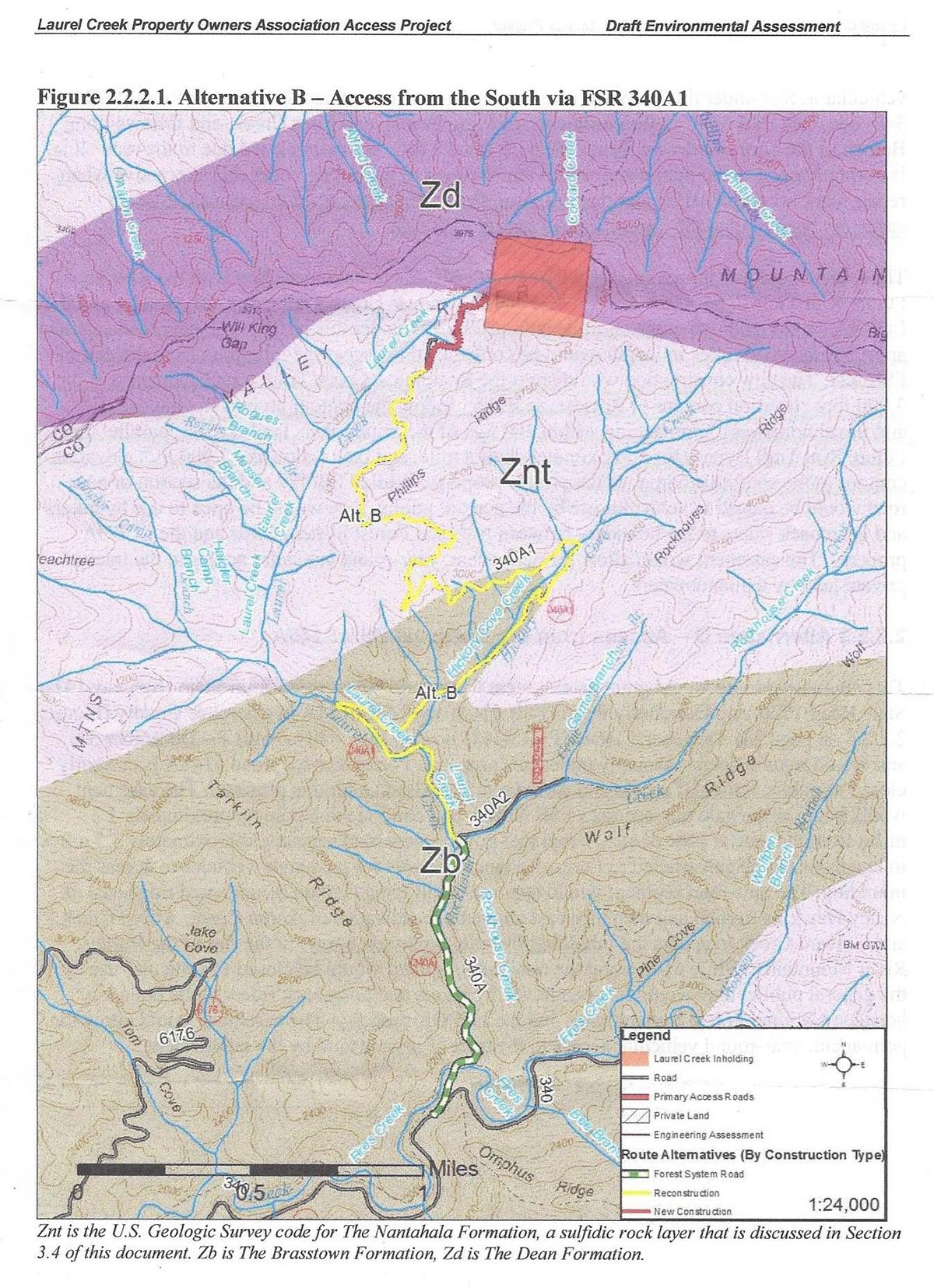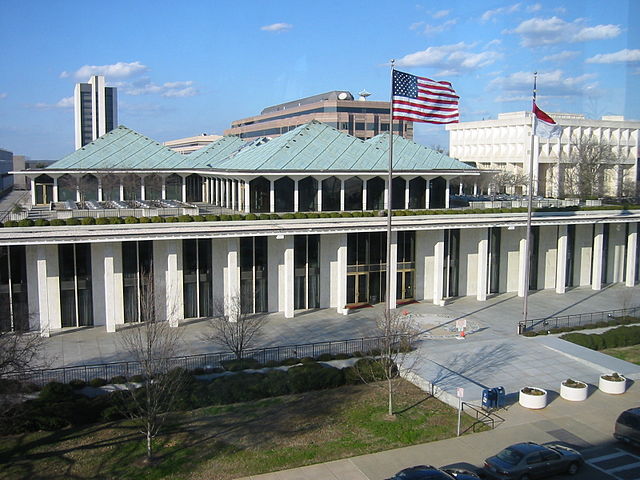July 15, 2020
Equity Reading: Racism is Killing the Planet
MountainTrue regularly discusses articles and essays about racial and economic equity, many written by people of color, at our staff meetings. To expand the reach of this process to our members and supporters, we are beginning to include resources by these thought leaders in our monthly e-newsletter.
First up is “Racism Is Killing the Planet” by Hop Hopkins of the Sierra Club, who connects climate change and the exploitation of poor people in sacrifice zones to the ideology of white supremacy. As Hopkins writes: “You can’t have climate change without sacrifice zones, and you can’t have sacrifice zones without disposable people, and you can’t have disposable people without racism.” Read more.
Good News at the General Assembly For WNC’s Waters!
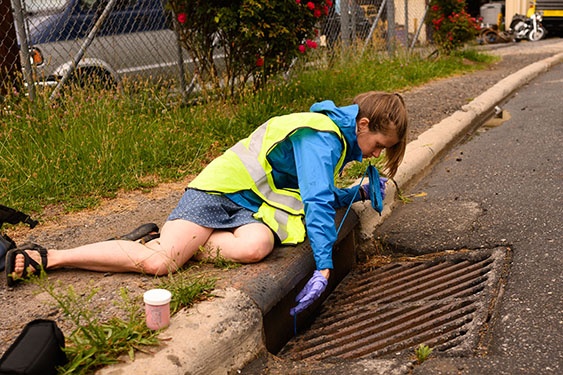 MountainTrue’s Watershed Outreach Coordinator Anna Alsobrook fishes for water samples in a storm drain in Asheville’s Southside neighborhood. New funding from the state legislature will increase our ability to conduct water quality testing.
MountainTrue’s Watershed Outreach Coordinator Anna Alsobrook fishes for water samples in a storm drain in Asheville’s Southside neighborhood. New funding from the state legislature will increase our ability to conduct water quality testing.
In a big win for our legislative advocacy, MountainTrue has secured $200,000 in funding for better pollution spill response in North Carolina’s waters and $100,000 for MountainTrue’s water quality testing in our region. “Not only will this expand our monitoring of harmful bacteria in the French Broad, but it will provide a significant boost to efforts to track and eliminate pollution sources,” says Hartwell Carson, MountainTrue’s French Broad Riverkeeper.
These achievements would not be possible without the leadership of Senator Chuck Edwards and Representative Chuck McGrady, as well as the MountainTrue members who make it possible for us to fight for WNC’s communities and environment in the legislature. Thank you! Read more.
Want The Skinny On How Our Legislators Are Protecting Our Environment (Or Not)?

Join us Monday, July 27 at 12 p.m. for a special live Raleigh Report featuring MountainTrue’s lobbyist Rob Lamme and our legislative advocacy team. During this webinar we’ll discuss MountainTrue’s legislative priorities and work, and how environmental issues have fared in the General Assembly this year.
Rob Lamme has represented MountainTrue in Raleigh for state government affairs since 2016 and has worked in North Carolina policy and government for more than 20 years. He is the former communications director and budget director for the North Carolina Senate, as well as government relations director for the NC Department of Health and Human Services. Sign up here.
Subscribe to the Raleigh Report
Sign up to receive our Raleigh Report email in your inbox! Rob represents us in Raleigh to help us stay in close contact with our region’s legislators. Through these relationships, we have recently secured state funds for better pollution spill response and expanded E.coli bacteria testing in our rivers. Read the latest Raleigh Report here to learn more about these recent wins!
June 29: A Milestone For Our National Forests
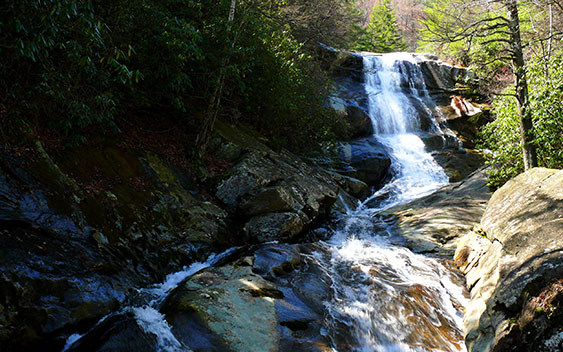 Upper Creek Falls on Upper Creek (part of the Catawba River Watershed) in Pisgah National Forest. Photo by Ken Thomas
Upper Creek Falls on Upper Creek (part of the Catawba River Watershed) in Pisgah National Forest. Photo by Ken Thomas
On June 29, MountainTrue delivered more than 600 public comments on the Draft Management Plan for Nantahala and Pisgah National Forests. This moment marked a major milestone in a six-year public campaign to win a better Forest Management Plan.
In that time, MountainTrue members and supporters have generated thousands of comments throughout the different phases of the plan through our online action alerts and cards that we handed out at trailheads (before the pandemic). MountainTrue staff have spent tens of thousands of hours in the field, reviewing planning drafts and documents, working with stakeholders and drafting formal comments. We organized four panel events across Western North Carolina and six more online virtual info sessions since the COVID-19 lockdown.
Let’s take this moment to celebrate each other for our collective hard work. Great job! And let’s hope that it all pays off with a great management plan that protects our forest ecosystems, helps sustain our region’s economy and provides our community with wonderful places to work, play and rejuvenate. Read more.
Ash Re-Treatments Underway
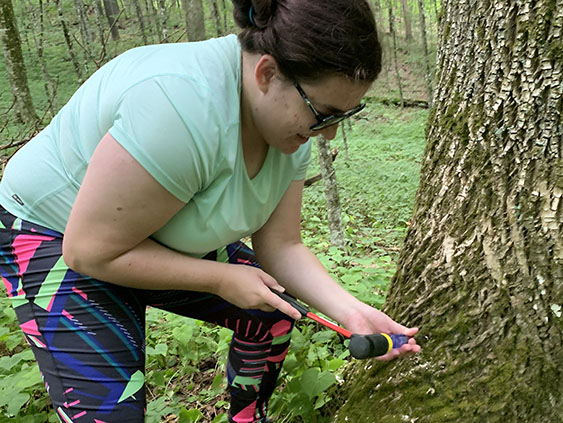 MountainTrue’s AmeriCorps Water Quality Administrator Grace Fuchs re-treats an ash tree during a recent MountainTrue workday.
MountainTrue’s AmeriCorps Water Quality Administrator Grace Fuchs re-treats an ash tree during a recent MountainTrue workday.
Over the past few years, MountainTrue has taken on the task of responding to the destructive Emerald Ash Borer – a small, non-native invasive beetle that is fatal to all species of North American ash trees. We’ve treated over 1,100 trees across WNC, and since each treatment lasts three years, now we’re going back to groves that were initially treated in 2017. So far we’ve re-treated over 100 trees in a beautiful grove on Bluff Mountain along the Appalachian Trail in Madison County. Later this summer we’ll also begin treating a new site in the Big Ivy area of Pisgah National Forest, which does not yet have any treated groves of ash. Read more.
MountainTrue’s Asheville Design Center Innovates Solutions For The Housing Crisis
MountainTrue’s Asheville Design Center (ADC) is leading a review of 40 City-owned properties for small-scale affordable housing development to increase permanently affordable housing options in Asheville. This effort is part of a collaborative with the City’s Community Development Department, Asheville-Buncombe Community Land Trust, Habitat for Humanity, and Homeward Bound.
Typically, new affordable housing in Asheville is incentivized by federal, state and local funding for private developers when they commit to making a small number of new housing units affordable for a certain number of years. Instead, this model will provide affordable rental housing and homes for ownership within the city without time limits allowing qualifying families to build generational wealth, and making our communities more culturally and economically diverse. New homes can be constructed on smaller lots throughout the city within current zoning restrictions. This type of small scale development, often called “missing middle” housing, can bring density to a neighborhood without disrupting the character of the community.
ADC volunteers from Advantage Civil Engineering, a local civil design firm, are helping to identify the top City-owned properties that are candidates for affordable housing development. As the Asheville-Buncombe Community Land Trust takes ownership of these properties, revenues generated by home sales and rentals will flow back into the Community Land Trust and fund the purchase of more affordable housing. We hope this project can serve as a model for how to deliver small-scale, permanently affordable housing to help meet our region’s needs.
Update on Swim Guide Testing in the High Country
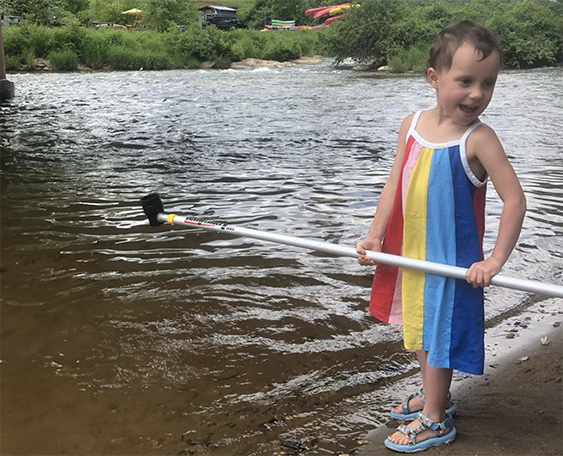 Willa “Wild Bill” Hill helps out with water samples for our Swim Guide monitoring program.
Willa “Wild Bill” Hill helps out with water samples for our Swim Guide monitoring program.
Our Swim Guide monitoring program in the High Country is in full swing, and this year we’ve expanded to include two additional testing sites on the New River and four more sites on the Watauga River tailwaters. So far we’re seeing mixed bacteria results across the watershed, with three of the sites we monitor consistently failing to meet EPA water quality standards: Calloway Bridge on the Watauga River, Guy Ford Bridge and Hickory Nut Gap Road on the Elk River.
These results could be due to changes in how land near our rivers is being used and/or higher than average rainfall. We believe the increased E. coli levels at these sites are due to a combination of leaking septic systems and sewer infrastructure, as well as stormwater runoff from golf courses and agricultural operations. Water pollution is caused not only by leaks in broken sewer pipes, but also when heavy rains overwhelm sewage systems and cause them to overflow – releasing large amounts of untreated sewage directly into rivers, streams and lakes. Unfortunately, these pollution events are common, and we believe many of them go unreported to the public.
To better track sources of pollution we’ve hired Hannah Woodburn as our AmeriCorps Water Quality Administrator, added lab capacity to our testing program and have begun using new cutting-edge techniques. One such technique is using a fluorometer to trace the optical brighteners and detergents commonly found in sewage in order to track pollution in real-time. Learn more about our water monitoring program in the High Country and our campaign to stop the root causes of these pollution problems here.
Outdoor Spaces Accumulating Litter
With more and more people turning to outdoor spaces, public lands, and waterways for recreation during the summer, the litter they’re leaving behind is adding up. We’re seeing lots of plastic bottles and flip flops on the Green River, masks and gloves at trailheads, and overflowing trash cans in our parks and greenways.
You can help! MountainTrue and our partner organizations have organized virtual cleanups, like the Riverkeeper Beer Series Cleanups, but you don’t need us to tell you when or where to go. Just grab a trash bag next time you take a neighborhood walk or hit your local trail and fill it up. Every little bit helps, and you can be an example and encourage others to think twice about littering.
Laurel Creek Inholding Now Part of Nantahala National Forest
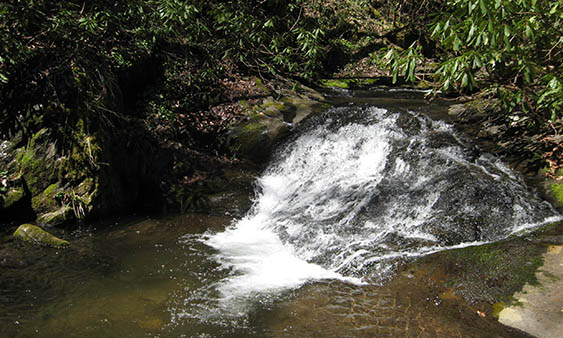
On June 17, the US Government purchased a 49.33-acre in-holding at the headwaters of Laurel Creek in Clay and Cherokee counties, making the land public and part of Nantahala National Forest! The purchase from the Mainspring Conservation Trust closes the loop on a 12-year battle by the former Hiwassee River Watershed Coalition, MountainTrue and several other partners to prevent private landowners from building a road through the National Forest and cabins at the top of pristine headwaters of Fires Creek. Read the whole story here.
Road Construction, Clean Water and Muddy Water Watch Training
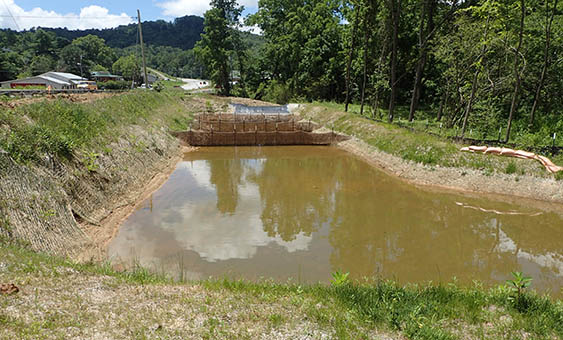 A settling basin installed by NCDOT protects Blair Creek from sediment pollution associated with the widening of NC Hwy. 69 in Clay County.
A settling basin installed by NCDOT protects Blair Creek from sediment pollution associated with the widening of NC Hwy. 69 in Clay County.
Quite a bit of road construction is happening across North Carolina’s far western counties right now, as the NC Department of Transportation (DOT) is actively working to repair parts of major highways that are sinking or sliding and to widen other sections of roadways. We’ve been on the lookout for muddy waters with all the rain we’ve been getting, but we haven’t found any associated with road projects! DOT and its contractors have been doing an excellent job installing and maintaining practices like the one pictured above to keep our streams and rivers clean. We are planning a virtual training event for the Muddy Water Watch program so you can learn how to easily notify us and regulatory authorities with the proper information when you see sediment entering a waterway.
“Confluence” Water Quality Conference is Virtual and FREE This Year!

Every year the Georgia Adopt-A-Stream program hosts an excellent water quality conference called Confluence, named for the point at which streams converge. This year it’s being offered virtually and free of charge! There will be live sessions at different times every day this August, and each session will also be recorded and made available on the conference website. There will also be opportunities for virtual networking and social time.
The conference will conclude with a live keynote address by Paddle Georgia Coordinator Joe Cook on Saturday, August 29th. See the Confluence 2020 schedule here.
Events Calendar
TODAY: July 15, 11:30-12:45pm: MountainTrue University: Dear White People
This week’s MountainTrue University will feature Tanya Marie Cummings, a MountainTrue board member and the founder of Pathways to Parks, in a talk sharing how she’s experienced racism as a black woman in WNC and in the outdoors. Tanya believes that when white people pull their heads ‘out of the sand’ and strive to understand the ugly disease of racism, they can become allies to black people to effectuate the change that America so desperately needs.
July 26, 2-5pm: Apalachia Lake Paddle
Join us for a socially distant canoe outing on the peaceful Apalachia Lake, which has very little private shoreline development and no commercial recreation facilities. Fishing and swimming are both options along the way, so bring your line if you’d like.
July 27, 12-1pm: MountainTrue Raleigh Report Live with Rob Lamme
Join us for a special live Raleigh Report featuring MountainTrue’s lobbyist Rob Lamme and MountainTrue’s legislative advocacy team. We’ll discuss MountainTrue’s legislative priorities and work, and how environmental issues have fared in the General Assembly this year.
August 1: Virtual Riverkeeper Beer Series Cleanup with The Wedge Brewing Company
Despite the unusual times we find ourselves in, there is still trash collecting in our rivers. On August 1, we’re calling for as many folks as possible to help us clean up the French Broad by cleaning your local creek, roadway or neighborhood. We’re also holding a socially distanced in-person cleanup with limited capacity in partnership with the Wedge Brewing Company.
August 22: Virtual Beer Series Cleanup With Wicked Weed Brewing
Join MountainTrue, the French Broad Riverkeeper, Wicked Weed Brewing and 98.1 The River for the another Riverkeeper Beer Series cleanup. Clean up the French Broad River and your local creek, roadway, or neighborhood.











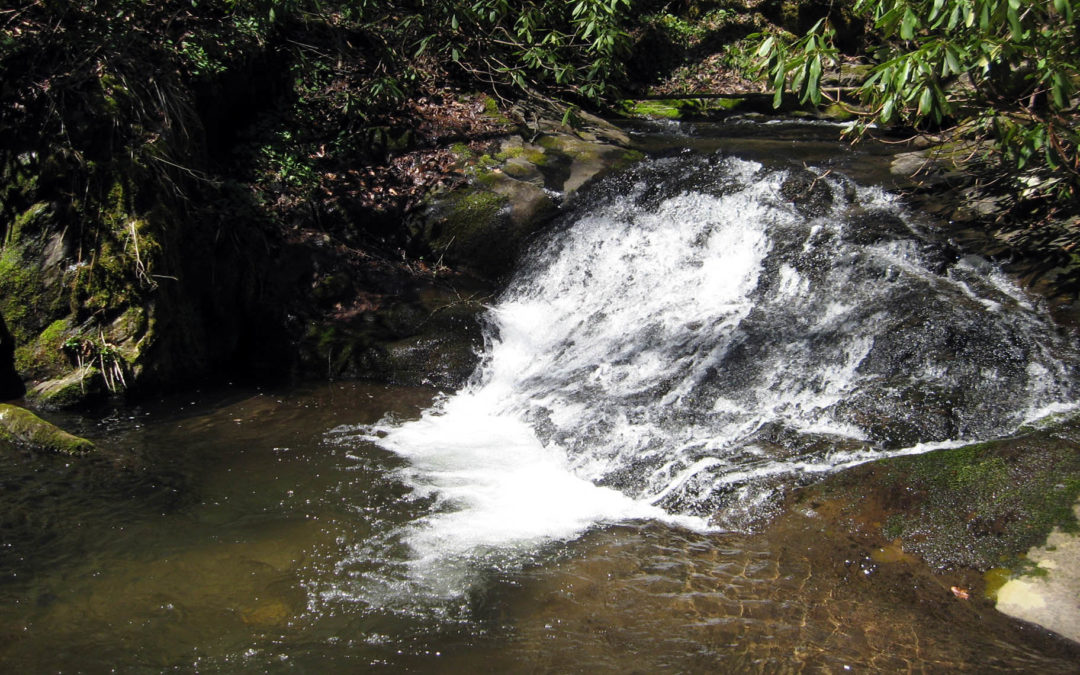
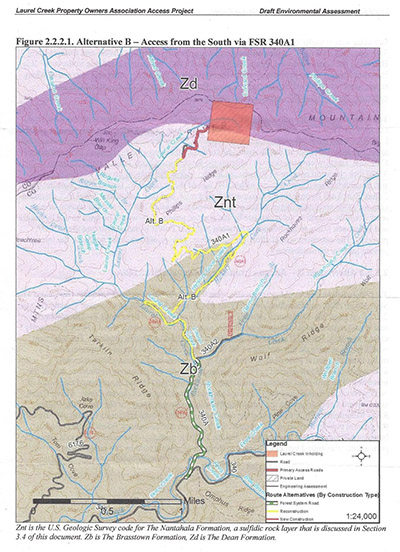 The long journey to public ownership began back in 2008 when the Forest Service released a scoping notice for a proposed road-building project in the Fires Creek watershed of Nantahala National Forest in Clay County. Through the scoping letter, we learned that in March 2006 some people had collectively purchased an almost 50-acre inholding (piece of private land completely surrounded by public land) on the rim of the Fires Creek watershed with no vehicular access and they were requesting to build a road to it. The preferred route was following a very old logging road, turned horse trail, for 3.5 miles up the Laurel Creek and Hickory Cove Creek drainages, and then constructing 0.34-miles of new road at the very top.
The long journey to public ownership began back in 2008 when the Forest Service released a scoping notice for a proposed road-building project in the Fires Creek watershed of Nantahala National Forest in Clay County. Through the scoping letter, we learned that in March 2006 some people had collectively purchased an almost 50-acre inholding (piece of private land completely surrounded by public land) on the rim of the Fires Creek watershed with no vehicular access and they were requesting to build a road to it. The preferred route was following a very old logging road, turned horse trail, for 3.5 miles up the Laurel Creek and Hickory Cove Creek drainages, and then constructing 0.34-miles of new road at the very top.